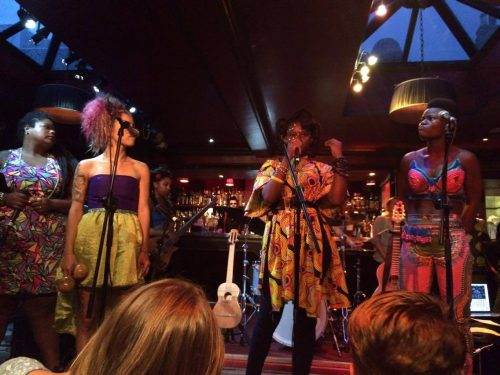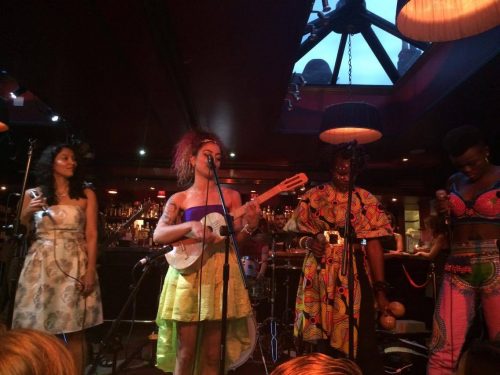One of the first (and most enjoyable) activities I’ve done in my first three weeks at CAAT has been to attend an evening of stunning performances put together by In Place of War last week.
In Place of War (IPOW) brings together creative people across the world in zones of conflict, giving them the skills, confidence and space to develop radical resistance to violence. Supportive creative communities are formed locally and given an international platform to share their stories internationally.

The evening was a strong reminder that the impact of war and conflict stoked by the arms trade, subsidised by UK tax payers and protected by British politicians has a dire impact particularly on women of colour globally. Artists who disrupt gendered violence – which becomes more p otent in areas of conflict – as AWA from Zimbabwe does in her music, must be given bigger platforms.
The 15 strong collective of women from around the world put together their repertoire in only 3 days, with the help of Errollyn Wallen, the first black woman composer to compose for the Proms. The differing styles, technology and range of instruments led to each artist stepping outside their comfort zones and sharing the very best of their work.
The Q&A session focused on how women navigated the music industry and their experiences with sexism – previous years had seen the event dominated by men and so this year only women were invited to participate. It would have been good to hear more about the work of IPOW and the effects of conflict in the artists’ music.
Efforts to move towards peace and reconciliation are undermined by our universities who continue to invest and carry out research in partnership with the arms industry. Art and music can be powerful tools in explaining the destructive impact of conflict. Our support of artist resistance is crucial to empowering communities to share the realities of the arms trade and strengthening global resistance to militarisation.
